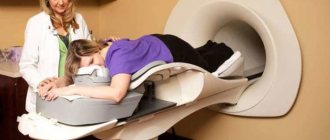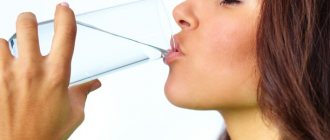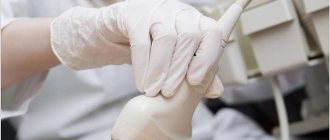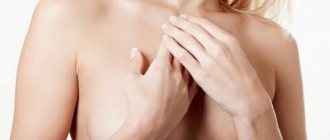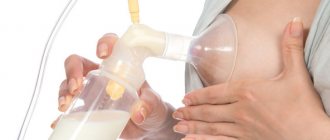Now that the art of tattooing has become extremely popular, many girls are interested in whether it is possible to apply designs to their bodies during pregnancy and breastfeeding. However, no matter what the answer is, every young or expectant mother must decide for herself. Doctors can only warn about adverse consequences, but they do not always happen.
The thing is that, despite modern times, no one has yet been able to study the effect of tattoos or permanent makeup on pregnancy and lactation. Gynecologists strongly advise you to wait a little while applying a body image during such a difficult period for a woman. However, some argue that tattoos have no effect on the fetus or breastfeeding. As a result, it turns out that if a girl decides to get a tattoo or make-up, she can easily afford it. The tattoo artists at the 1000 Tattoo salon refuse to give pregnant and breastfeeding women a tattoo, because they have good reasons for doing so.
The danger of tattoos for pregnant and lactating women
tattoo for gv
Dying substances can enter not only the blood, but also into breast milk, so no one can say how this can affect the baby’s health, because this has never been studied.
2. Each person perceives the process of creating a tattoo differently. Everyone's pain threshold is different, so even with the use of approved painkillers, the mother may become stressed, which is why the baby will feel it, and the milk supply may stop altogether.
3. Nursing and pregnant women have a unique hormonal profile. This is why hormones have a strong effect on dyes, which causes the paint to apply unevenly. The color may turn out completely different from what you need, or be completely absent.
Naturally, you can not believe all this and experiment, but sometimes it’s worth listening to the opinion of experts.
Where and when to get a tattoo
Still, it is better not to get a tattoo while breastfeeding and pregnancy. After all, pain and stress can provoke loss of milk, and this situation will also make the expectant mother worry.
That is why you should consult a doctor before visiting a tattoo parlor. He may also prescribe pain medication so that the woman does not suffer too much. Therefore, in order to avoid unnecessary cash costs, in addition to the cost of the tattoo (more about tattoo prices https://tattookiev.com.ua/stoimost.html), it is still recommended to wait a little while applying the tattoo!
It is also worth remembering that childbirth is extremely stressful for the body, so it needs time to recover. So is it worth it to once again traumatize the body and force it to fight external interference?
We will be grateful if you share the article:
Features of tattooing
Young mothers are looking forward to the end of pregnancy, waiting for the appearance of their long-awaited miracle, so that they can begin to enjoy all the little things of motherhood, and many want to finally get a tattoo, which they really wanted to get, but only after the baby is born. Some mothers want to add another tattoo to their body, and some dream of updating their permanent makeup, which was long overdue for correction, but due to pregnancy it was not possible to do so. Here a new obstacle appears on the horizon - breastfeeding, and the question arises again: is it possible to tattoo eyebrows while breastfeeding?
If a tattoo involves the introduction of dyes into the deep layers of the skin, due to which the design remains on the body throughout life and only occasionally requires correction to update the color or add a new element, then with permanent makeup the situation is somewhat more delicate.
With permanent makeup, paint is injected into the very top layer of the skin; a needle with dyes penetrates to a depth of 0.3 to 0.8 mm. Since the renewal of the upper layers of the skin occurs quickly, the period for removing the design from the skin will be much faster than that of an ordinary tattoo. The effect of tattooing lasts from 6 months to three years, depending on the chosen technique, the material used and the individual characteristics of the body.
Permanent makeup is strictly contraindicated during pregnancy, but the question of whether it can be done while breastfeeding has not yet been fully studied. Here, everyone must determine for themselves whether she wants to do this, taking full responsibility, or not.
latest comments
No comments.
Is it possible to chew sulfur while breastfeeding (Monday, March 12, 2018)
I was looking for IS IT POSSIBLE TO CHEW SULFUR WHILE BREASTFEEDING
. FOUND! Country of childhood » Question and answer » Breastfeeding » Question: Can a nursing mother chew gum?
In general, chewing gum contains some kind of rubbish, which is a source of phenylalanine.
You can drink sulfur during lactation. Do you have any good examples of a woman/young man?
(8). Both husband and lover are annoying (2). Is it possible to use chewing gum while breastfeeding? Most often, chewing gum during breastfeeding is just momentary joy for the mother. How and how much you can chew gum. I haven’t heard it either, after all, you don’t need to eat, and you don’t have to chew constantly 24 hours a day, but for a couple of minutes after eating, what would be bad?
Well, how is that, or can doctors do everything?
202.
The influence of hormone balance on the quality of tattooing
With hepatitis B, the volume of prolactin increases, which affects water-salt metabolism, leads to the acceleration of metabolic processes and has an immunoregulatory effect. These features lead to the fact that in some cases, when applying makeup, you can get an unexpected shade.
There is also often a danger of the pigment being washed out quickly. The fact is that during breastfeeding, immune cells recognize the dye as a foreign object and try to speed up its removal from the body . This negatively affects the shade of the tattoo.
Is it possible to get a tattoo while breastfeeding?
Is it possible to achieve justice?
Smoking is harmful to the health of both mother and child, regardless of whether the child is breastfed or bottle-fed. Tattoos can also be removed while breastfeeding. Hello girls!
Help me figure out the question I need. I don’t chew gum, but I chew larch sulfur (this kind is sold at the pharmacy). I love it very much and it helps with nausea (toxicosis) and with heartburn. Maybe you can still chew it?
and I chewed gum. at what often. I don't see anything harmful in this. Is it possible to chew sulfur while breastfeeding - NO MORE PROBLEM!
Anything in moderation is possible. Abyssinian. Sanka. Aug 26 2010, 08:19 PM. It’s better to chew natural sulfur, they say it’s even beneficial. The same drugs can be taken by the mother during breastfeeding. The “old-fashioned method” of dealing with colic is crystalline sulfur. A little bit of “dust” scraped with a knife from a piece of wax onto the nipple - and the problem will be solved. I bought Orbit and got thinking about it. Is it even possible to chew it?
It was not recommended during pregnancy. confidentially - many here even drank alcohol during breastfeeding during breastfeeding and are all alive, but you’re talking about Rolla’s orbit during breastfeeding - is it possible?
Secrets of cooking at home. Substances contained in chewing gum lead to the destruction of nerve cells. How and for how long can you chew gum?
I chewed during pregnancy and now I chew during breastfeeding. Everything is ok)). Previously, they did not write about contraindications for B and GW. I don’t think it’s possible to notice on your own whether chewing gum has any influence on endocrine processes and cell synthesis. Chewing gum during breastfeeding: composition of chewing gum, use of the product and possible consequences for the body of a nursing mother. Search the site Vskormi.ru. Can a nursing mother chew gum? Is it possible to chew sulfur while breastfeeding?
- 100 PERCENT!
*Is it possible to chew gum while breastfeeding?
Chewing gum is not recommended during pregnancy and breastfeeding. It even says on the packaging that it contains a source of phenylalanine. How ready is your baby to stop breastfeeding?
You may want to think about stopping breastfeeding. Like, the child can already chew, and he needs to be fed solid food. Ear wax in a child is the cause of deviation from the norm. Sulfur - This trace element maintains the elasticity and healthy appearance of the skin. Sulfur is necessary for the formation of keratin - protein You will poison the child!
But if YOU have an iron deficiency, you can chew on a stainless steel spoon. Good luck!
Is it possible for a nursing mother to chew gum during lactation?
Tips for using gum while breastfeeding: Do not use gum before feeding your baby. December 24, 2012, 17:46 • Is it possible?
?
Girls, does anyone know why you should not chew sulfur during pregnancy?
I have already chewed 3 packs, and today I bought another brand at the pharmacy, and there are contraindications for pregnancy and breastfeeding. Sulfur, phosphorus - yes. Arsenic, mercury - not allowed. why chew it?
There are no other products or something. Find out if you can chew seeds while breastfeeding. What's the use of them?
Is it possible to harm sunflower and pumpkin seeds?
Detailed answers in the article. https://www.greenmama.ru/nid/3362446/ https://www.greenmama.ru/nid/3362454/ https://www.greenmama.ru/nid/3500555/ https://kumu.io/ bulumnoloc1982/diabetes-not-a-sentence/issues/334
Tattoo and piercing for a nursing mother
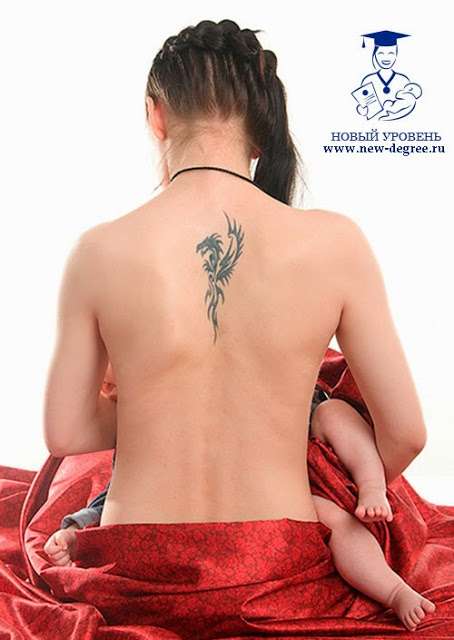
People have been practicing radical body modifications, such as piercings, scarring, and tattoos since ancient times. Historians claim that 4,000 BC, such methods of decorating one’s body were already in use. And in the last 20 years there has been a real explosion in the popularity of these practices. Mothers with tattoos or nipple piercings are becoming more and more common in our practice. Pregnant women often ask questions about the possibility of breastfeeding with piercings.
With piercings, breastfeeding is quite possible, you just need to know a few rules.
— It is advisable that after the nipple piercing at least one and a half to two years pass before the start of pregnancy.
— During pregnancy, piercing is extremely undesirable due to changes in the tissue of the mammary glands and, in particular, the nipples.
— During breastfeeding, nipple piercing is categorically not recommended, since it will be necessary to prevent saliva from entering the wound for a long time and reduce mechanical stress on the nipple.
— After finishing breastfeeding, at least 3 months must pass for the risks associated with piercing to decrease to a minimum.
Before feeding the child, the metal earring must be removed or replaced with bioplastic. Mothers and experts noted that piercing during lactation makes it difficult to feed in public places, interferes with the mother’s ability to get enough sleep during co-sleeping and night feedings, increases the risk of breast abandonment, and in some cases, the flow of milk is disrupted.
Professional tattoo artists never work with pregnant women.
Video tip
Permanent makeup makes it easier for a woman to take care of her appearance. With the help of tattooing, you can emphasize facial features and also hide imperfections in appearance. There is no clear answer to the question of whether tattoos cause harm to a woman’s lactation. The likelihood of hazardous substances getting into mother's milk is minimal. However, severe stress associated with pain can worsen the lactation of a nursing woman. The woman herself must decide whether tattooing can be done during lactation. Tattooing while breastfeeding is not necessary. Therefore, it is better to postpone the time of its implementation to a later date, not related to lactation and pregnancy. Postpone the procedure for a period of 3 months after the end of breastfeeding, this way you will protect yourself and your baby from unjustified risk and can be confident in the result.
Now watch video advice from a specialist:
Tattoo and make-up for breastfeeding
Most likely, a nursing mother will also be refused a tattoo if she informs the artist that she is breastfeeding. Of course, the paint particles do not get into the milk, but the substances that make up the paint get into the bloodstream, and from there into the milk. For most adults, special dyes are safe, but in an infant they can cause allergies and intoxication, especially red ink. It will take 1-3 weeks for the tattoo site to heal completely, and throughout this period the risk of local infections remains. The risk of systemic infections, including HIV and hepatitis C, persists even longer after tattooing.
It is advisable that mothers who have tattoos warn the pediatrician who is monitoring the baby and the lactation consultant about this if they seek help from this specialist.
Tatyana Kondrashova
Possible problems
GW, like pregnancy, are contraindications for any types of tattoos. In many salons, upon learning that the visitor is a nursing mother, they will refuse to perform the procedure. There are several reasons. Not everyone has problems that arise, hence the diversity of reviews. But in order to decide whether to get a tattoo or permanent makeup right now, you need to know about them.
Painful sensations
The effect of hormones responsible for lactation is such that a woman’s pain threshold decreases. What was previously quite tolerable becomes unbearable. The face is especially sensitive, so permanent makeup is much more painful than a regular tattoo. At the same time, eyebrow tattooing is easier to tolerate than lip and eyelid tattooing.
Anesthesia
Lidocaine (topical) is most often used for anesthesia for tattooing. This drug can be used. But the wording is standard: “use is possible if the expected benefit to the mother outweighs the potential risk to the child.” It is clear that if a mother has a toothache, there is nowhere to go, she must be relieved and treated. But whether the benefits of tattooing outweigh the possible risk for the baby, only the mother herself can decide.
Pain stress
Mother and infant are connected by invisible threads. Any changes in the mother’s mood inevitably affect the baby. If she experiences pain, the child becomes restless and nervous. Severe stress can also cause milk loss. Yes, this rarely happens with a tattoo, but whether it’s worth the risk, everyone decides for themselves. If for a mother the very fact of not being able to get permanent makeup is a cause of severe stress, then perhaps it’s worth doing it and forgetting it.
Hormonal background and paint behavior
The main reason why salons turn away breastfeeding women, and the most common problem is the unpredictable behavior of coloring pigments.
It is caused by hormones, which simply rage during breastfeeding. There is a high probability that the tattoo ink will not take or will dissolve very quickly. And, for example, you can get blue eyebrows. However, everything is very individual, and no one can say for sure what the consequences (or lack thereof) may be.
Problems with post-procedure care
The crusts that form after tattooing must be carefully looked after: lubricate with special creams, do not tear off or get wet. Mom needs to find time to care for her skin, which is also sometimes difficult. And how can you explain to an infant that you can’t touch their face? You also need to think about who will walk with the baby until the face looks decent.
Danger of infection
If you still decide to get a tattoo, then you need to choose the salon very carefully. It is necessary to ensure compliance with all sanitary standards. Infection is dangerous not only for the mother, but also for the child. It is important to know that often the salon workers are not to blame; an infection can be obtained after the procedure. Open wounds are a wide open gate for all kinds of bacteria and viruses. Even a beloved baby can get an infection by running his hand over his face. The source of infection is often a carious tooth or an exacerbation of herpes. And treating a breastfeeding woman is difficult. Most medications are prohibited. If you become infected, you will most likely have to stop breastfeeding for the duration of treatment.
Allergy
The coloring pigments used for tattooing can cause allergies in the mother. Treating a nursing mother is just as difficult as treating an infection. Not all medications can be used during lactation. Permanent makeup is performed with natural pigments, so it is less allergenic than tattoos on the body, which are made with more durable paints with mineral components.
Permanent makeup and tattoos can be done on mothers while breastfeeding. Large dye molecules do not pass into breast milk, and the procedure does not directly harm the baby. But there are many possible side effects, so each mother must decide for herself whether she really needs a tattoo right now.
Can nursing mothers have cocoa?
There are many taboos for nursing mothers: you can’t drink alcohol, you can’t eat spicy foods, you can’t smoke. All this is quite reasonable, since through milk the child receives everything forbidden and unhealthy that the mother was careless to eat or drink.
Doctors also do not recommend cocoa during breastfeeding, since it is on the list of highly allergenic products. You should especially beware of consuming cocoa during lactation in the first 3 months of a child’s life.
The baby may react to cocoa with diathesis. In addition, he may become aggressive. Some researchers have made a connection between the consumption of cocoa by nursing mothers and the child's insomnia. The same applies to coffee and chocolate.
But is everything really that scary? First of all, we should not forget that all people are purely individual. And the fact that some have an extremely negative impact on their well-being, others do not cause any reaction at all.
And yet - can nursing mothers have cocoa? Of course, there is no clear answer to this question. It is necessary to determine the degree of influence of this drink on your child. Drink a cup of cocoa and watch your child on this day. If no rash appears, the child does not become overly active and aggressive and does not react in any other way to the experimental intake of cocoa, you can try again after a couple of days.
In any case, a nursing mother should not drink cocoa every day, but a maximum of twice a week. And you need to choose a time when the child has just eaten, preferably in the first half of the day. Although caffeine is absorbed in small doses, it is absorbed! This means that it can somehow affect the baby’s well-being.
And one more thing - if you desperately want to drink cocoa or coffee, choose natural coffee and high-quality cocoa. As for chocolate, it is better if it is pure and bitter.
Mothers who are planning to even just do a little work on their figure, not to mention more intense exercise, often have to listen to a bunch of advice (how could we not do without advice) and forecasts. The most common: there may be less milk, it may disappear, it may become tasteless due to lactic acid that has entered it...
Isn’t it better to sit at home, drink tea with condensed milk*, but when the feeding is over, then you can think about yourself... But is this true? Let's find out what the science says.
We improve our health and become slimmer.
Studies have shown that exercise had a positive effect on the functioning of the cardiovascular system, normalizing blood cholesterol levels and insulin sensitivity. In general, active, mobile mothers felt better in all respects. And my figure tightened even faster, and it was easier to control my weight.
Improve your mood and fight depression
In case anyone isn't already aware, exercise can be just as effective in treating depression as pills. And all this without the long list of side effects that can be found in the instructions for any antidepressant. There is such data for mothers with postpartum depression; physical activity also helps them. And in any case, depression or not, the mood of active mothers improves. So, from the point of view of preserving the nerves, playing sports is useful.
Does a mother's physical activity affect her milk supply?
As you know, the rate of milk production in the breast is regulated by its fullness. The longer milk accumulates, the more engorged the breasts become, the slower new milk is produced. And vice versa, the more the breast is emptied, the faster new things appear in it. Exercising in itself does not reduce the amount of milk, the main thing is that the baby suckles regularly. In the study, even those mothers who were on a diet in addition to regular exercise did not experience a decrease in their milk supply.
What about the composition of milk?
Physical activity of moderate intensity does not affect the composition of milk. Moderate means, for example, an hour and a half in the gym, three times a week. What if the training is very intense, to the point of exhaustion? The level of lactic acid (a product that appears in the blood during intense muscle work) actually increases slightly in milk for a short time (and then returns to normal levels again). But this is not harmful to the baby and does not lead to the baby’s refusal to breastfeed. There is no need to pump anything either before or after training.
Little tricks
It is important to feed your baby well (breastfed, of course) before heading to the gym. It’s a good idea to persuade your baby to breastfeed on both breasts for symmetry. This way you will have more time for classes, and your chest will be lighter.
But in any case, the breasts during feeding are heavier than in pre-pregnancy life, especially in the first months after childbirth. Therefore, you need to choose a good supportive sports bra. Sometimes mothers wear two at once, one on top of the other, for more support.
What if you can’t go for a full run or get to the gym? The gym is not an end in itself. Simple walks with your baby (with a stroller, or even better, in a sling) are ready-made physical activity in the fresh air. The main thing is not to sit on a bench, but to move. In one study (Armstrong, 2004), active walking with baby greatly reduced the number of mothers seeking help for postpartum depression. Interestingly, running circles around the neighborhood was more effective in preventing depression than participating in a social support group.
You can also do exercises at home. And you don’t have to wait for the baby to fall asleep soundly. It can help mom stay in shape. How? As... a dumbbell. There are several simple and fun exercises that both mothers and children enjoy. For mother - gymnastics, for child - a fun game and educational activity.
Literature
- N. Mohrbacher Breastfeeding Answers Made Simple. 2010 Hale Publ 905 p
- Armstrong K, Edwards H. The effectiveness of a pram-walking exercise program in reducing depressive symptomatology for postnatal women. Int J Nurs Pract. 2004 Aug;10(4):177-94.
- Da Costa D, Lowensteyn I, Abrahamowicz M, Ionescu-Ittu R, Dritsa M, Rippen N, Cervantes P, Khalifé S. JA randomized clinical trial of exercise to alleviate postpartum depressed mood. Psychosom Obstet Gynaecol. 2009 Sep;30(3):191-200.
gv and tattoo?
* tea with condensed milk is not a lactation stimulant, and is not at all necessary for nursing mothers. If you really want it, drink it to your health; if not, drink something else - water, tea, juice, compote, etc.
The stomach is one of the most common places for tattoos. A sufficiently large space allows you to create images of large sizes, adds piquancy and charm to its owner, the design can be easily hidden under clothes if necessary. Before you go to get a tattoo on your stomach,
You need to learn more about the features of placing the image in the abdomen.
Stomach tattoo
It is not recommended to make large tattoos on the stomach for girls
young age.
A woman's purpose is motherhood. During pregnancy, the shape of the abdomen changes, and with it the image becomes deformed. If you really want to have an image in this area, then you should choose a tattoo in the lower abdomen
, in the upper part, so that it does not undergo changes over time.
Women's tattoos on the stomach
For many, it is a good incentive to keep fit.
After all, a tattoo on a woman’s stomach
looks good with toned abs.
For girls who tend to be overweight, often go on a diet and constantly struggle with extra pounds, it is not advisable to apply voluminous pictures, since when weight fluctuates, the images are deformed. Small tattoos for girls on the stomach
are suitable for them Tattooing on the stomach for girls after childbirth
occurs if stretch marks or a cesarean scar remain after pregnancy. Tattoos can hide stretch marks or disguise a scar to restore confidence in your irresistibility.
Sketches of tattoos on the stomach
are chosen depending on the girl’s build.
